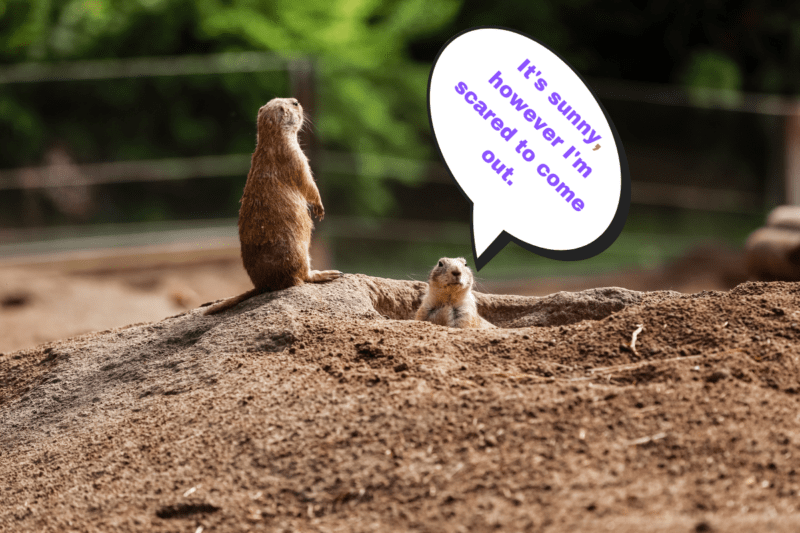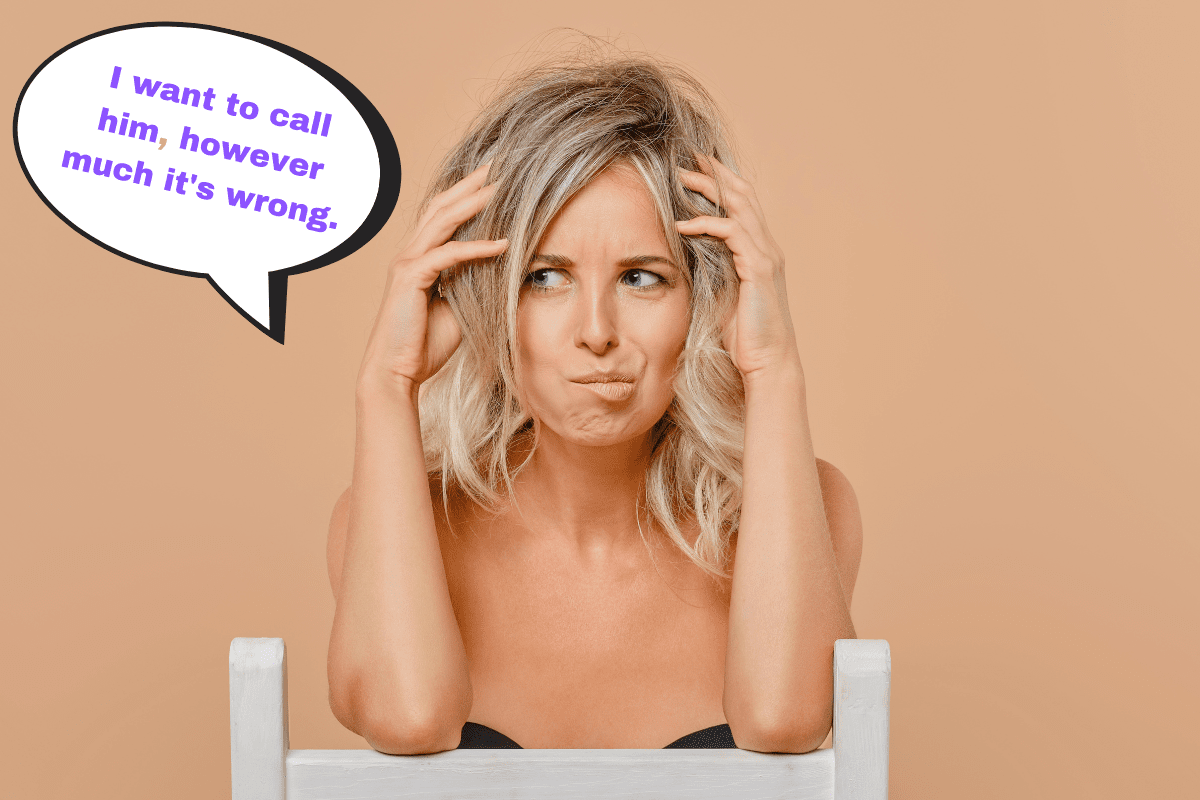What’s up, grammar nerds! Today, we’re discussing one of the most challenging comma dilemmas: using a comma before and after “however.”
We all know that the comma is the diva of all punctuation marks, and “however” is a common adverb. But when these two collide, it’s like a battle of the titans – who will come out on top? We’re here to break it down and guide you when you need a comma with “however.” So let’s get started!
Comma use with “however” in a sentence is common. But the placement of the comma depends on the context and the sentence’s intended meaning.
When “however” introduces a contrasting statement to a previous sentence, a comma typically follows it. But, a comma should precede “however” when it’s a modifier for a single phrase or clause.
Table of Contents
Can You Use “However” as a Conjunctive Adverb Without a Comma?

When “however” is a conjunctive adverb, it connects two independent clauses. It introduces opposition between the two clauses, meaning “but” or “in contrast.” You have two options:
a) place a semicolon before and a comma after “however.”
Example: The house is beautiful; however, it’s super expensive.
Example: The steak is delicious; however, it’s undercooked.
b) place a period at the end of your first clause and capitalize “however.” Place a comma after it.
Example: The house is wonderful. However, it’s super expensive.
Example: The steak is delicious. However, it’s undercooked.
According to grammar rules, a comma can’t connect two independent clauses joined by a conjunctive adverb. A period or a semicolon at the end of the first clause can break up the clauses.
Wrong: The garden looks lovely, however, it’s a bit too colorful.
Correct: The garden looks lovely; however, it’s a bit too colorful.
Correct: The garden looks lovely. However, it’s a bit too colorful.
Is a Comma the Missing Puzzle Piece for However as a Conjunction or Adverb?

You don’t use a comma when “however” is a conjunction or an adverb. Let’s check out three categories of meaning with examples.
a) When “however” means “no matter how,” “in whatever manner,” or “in any way.”
As an adverb:
Example: However you approach the problem, the solution isn’t simple.
Example: The solution isn’t simple however you approach the problem.
As a conjunction:
Example: I’ll help you however you want.
Example: Accept the situation however it’s presented.
b) When “however” means “to any degree.”
As an adverb:
Example: He hates that cat so much, he’ll figure out how to annoy it however long the cat stays away.
Example: However tricky your day is, you’ll be better tomorrow.
c) When “however” means “by any means.”
As an adverb:
Example: He doesn’t want to know however you earn it. He just wants his money.
Example: However you can, earn money fast.
Do You Use a Comma with “However” in Questions?

In interrogative sentences, “however” can also indicate surprise or wonder. This less common usage may emphasize a question: “How in the world…?”
For example, “However did you find him?” means “How in the world were you able to locate him?” When used in this manner, “however” is more frequently seen in formal writing but can be effective in conversation too. Unlike when it joins two independent clauses, a comma is unnecessary when “however” modifies the verb – as seen in the previous examples.
Using “however” in interrogative sentences can add wonder or surprise to your writing. Remember that when using “however” in this way, a comma is unnecessary and less common than using “however” as a conjunction.
If “However” Acts as a Conjunctive Adverb, Do You Use a Comma?

When “however” is used as a conjunctive adverb, it connects two main clauses, and the correct punctuation is vital in clarifying the meaning. Therefore, place a period or semicolon before “however” and add a comma after it to ensure proper punctuation.
Putting a period or semicolon before “however” helps to create a clear separation between the two main clauses.
Example: “She loves to dance. However, she’s never taken a dance class.”
The period at the end of the first sentence separates it from the second sentence, which starts with “however” as the conjunctive adverb.
The comma after “however” shows that it’s the beginning of a new clause and separates it from the rest of the sentence.
Example: “I wanted to go to the party; however, I was too tired.”
The semicolon creates a clear separation between the two independent clauses, and the comma after “however” indicates the beginning of the second clause.
Following this rule, you can create a clear and grammatically correct sentence that effectively conveys your intended meaning.
Remember, when using “however” as a conjunctive adverb, place a period or semicolon before it and a comma after it to ensure proper punctuation and clarity.
Is a Comma Necessary with However as a Parenthetical?

Parenthetical phrases are a great way to add extra information to a sentence. Commas often set them off to separate them from the rest of the sentence, but what about when “however” is used as a parenthetical? Do you need a comma, then? The answer is yes; a comma is necessary when using “however” as a parenthetical.
When “however” is used as a parenthetical, it adds extra information or an afterthought to the sentence.
Example: “The movie is good, however, it’s too long.”
Here, “however” is a parenthetical and provides additional information about the movie. The comma before and after “however” sets it off from the rest of the sentence and helps to clarify its role as a parenthetical.
It’s essential to remember that using a comma with “however” depends on its function in a sentence when used as a conjunction or adverb. But when using “however” in parenthetical form, you must always use a comma.
When Do You Place a Comma Before “However”

You place a comma before “however” when it’s a parenthetical.
A parenthetical is an element in a sentence that you can remove without affecting the basic structure or meaning of the sentence.
When a parenthetical is used in a sentence, it’s set off from the rest of the sentence by commas, dashes, or parentheses. In the case of “however,” it is often used as a parenthetical to express contrast or contradiction, and you need a comma to set it off from the rest of the sentence.
Example: I’m usually not a fan of horror movies, however, I thought that one was really well done.
Here, “however” acts as a parenthetical, adding extra information to the sentence. The comma before and after “however” sets it off from the rest of the sentence and helps to indicate that it’s a parenthetical element.
It’s important to note that parentheticals are not always used in the same way and can take on different forms.
They can also be enclosed in dashes or parentheses, depending on the writer’s preference or the context of the sentence.
For instance, you could rewrite the previous example as, “I’m usually not a fan of horror movies – however, I thought that one was really well done” or “I’m usually not a fan of horror movies (however, I thought that one was really well done).”
How to Use a Comma after “However” Like a Pro

When using “however” in a sentence, one of the most common questions is whether or not to use a comma after it. The answer, as with many things in grammar, is that it depends on the context of the sentence.
When “however” is used as a conjunctive adverb to connect two independent clauses, a comma is necessary to separate the two clauses.
Example: “I love my job; however, I can’t stand my boss.”
In this sentence, “however” is used to connect the two independent clauses “I love my job” and “I can’t stand my boss.” The comma after “however” indicates where the first clause ends and the second begins.
However (pun intended!), there are some cases where a comma after “however” isn’t necessary. For example, when “however” is used to modify an adjective or adverb, it doesn’t need a comma.
Example: “The movie is good; however, it’s too long.”
Here you need a comma after “however” because it’s connecting two independent clauses.
Example: “The movie however is too long” doesn’t need a comma because “however” is modifying the adjective “long.”
In addition, when “however” is used as a sentence adverb at the beginning of a sentence, it doesn’t require a comma.
Example: “However you look at it, this situation is a mess.”
Here, “however” is not connecting two independent clauses, and there’s no need for a comma after it.
The Appropriate Times to Use Commas Before and After “However”

If you use “however” as an aside or parenthetical in the middle of your sentence, you should put a comma before and after to set it apart from the rest.
This is because “however” is often used to provide additional information not essential to the sentence’s meaning or structure.
Example: “The test was easy, however, I still managed to make some mistakes.”
In this sentence, “however” is used as a parenthetical to add extra information about the test. The comma before and after “however” helps to separate it from the rest of the sentence and to show that it’s an aside.
Using “however” as a parenthetical is not the same as using it as a conjunctive adverb.
As mentioned, when “however” connects two independent clauses, you should put a semicolon or period before it and a comma after it.
But when “however” is used as a parenthetical, it does not connect two independent clauses, and a comma before and after is sufficient.
Should I Use a Semicolon or Begin a New Sentence?

If you’re anything like me, you probably spend way too much time worrying about the proper use of conjunctive adverbs like “however,” “furthermore,” and “consequently.”
But fear not, my friends, because I’m here to break it down for you in an informative and entertaining way!
So, first things first, let’s talk about what conjunctive adverbs do.
These little guys act like bridges between two independent clauses, helping connect ideas and create a smooth text flow.
That’s why they’re also known as “transitional phrases.” Think of them like traffic cops for your sentences – they keep things moving in an orderly fashion.
Regarding conjunctive adverbs like “however,” you have several options.
You can either use a semicolon before the conjunctive adverb, or you can start a new sentence.
A semicolon is a way to go if the ideas are closely related and you want a smooth transition between them.
But be careful not to overuse semicolons, or you risk annoying your readers and diminishing the smoothing effect between the clauses.
And here’s a little tip: most conjunctive adverbs should be written with a capital letter and start a new sentence.
Example: “I hate potatoes. However, I like chips.”
This is the most common way to use conjunctive adverbs and will keep your writing looking polished and professional.
When to Skip Commas with “However?”

You might be wondering if there are any times when you don’t need to use a comma with “however.”
The answer is yes – conjunctive adverbs like “however” can modify other parts of a sentence besides connecting them, which means you can skip the commas.
For example, you can use “however” to imply the meaning of “despite how something was done” or “in whichever way,” and you don’t need to use a comma around it.
This is also true when “however” is used as an adverb of manner, meaning it explains how something is done.
The meaning is “in all or whatever ways possible.” So there’s no need to separate it from the rest of the sentence with commas.
For instance, the sentence: “My brother keeps forgetting to turn off the TV before sleeping, however, we always remind him.”
Here “however” is used as a conjunctive adverb and requires commas around it.
But, if we take out the commas and use “however” as an adverb of manner, the sentence becomes: “My brother keeps forgetting to turn off the TV before sleeping however we always remind him.”
There’s no need for commas because “however” is modifying the adverb “always” and not connecting two independent clauses.
It’s important to note that using “however” in this way is less common than using it as a conjunctive adverb, so double-checking for clarity is always a good idea. Comas are like that extra dash of seasoning that makes a sentence saucy and easy to comprehend, so it pays to use them in the right places!
Starting a Sentence with “However.” Rules to Follow.

Let’s talk about “however” at the beginning of a sentence. It’s a versatile little word you can use in several ways. So, knowing when to use a comma and skip it is essential.
First, if you use “however” as a conjunctive adverb for contrast and an independent clause follows it, you should put a comma after it.
Example: “The sky is full of clouds. However, it’s nice and warm.”
It’s like a traffic light for your sentence – it helps the reader pause and take in the contrasting ideas.
By the way, conjunctive adverbs that need similar punctuation are: “moreover,” “furthermore,” “consequently,” or “additionally.”
These words are like the popular kids at grammar school, always hanging out together and causing trouble.
Now, if you’re using “however” in a dependent clause to mean “in whatever way,” don’t put a comma after it. Instead, end the dependent clause with a comma.
Example: “However you read it, it’s threatening.”
Here, “however” introduces a dependent clause that couldn’t stand alone as a sentence, so you don’t need a comma before it.
And finally, if you’re using “however” to begin a question, don’t put a comma after it.
Example: “However will we get this report written?”
This is like a grammar puzzle – the “however” is at the beginning, but because it’s a question, no comma is needed after it.
The Use of “However” Smack in the Middle of a Sentence

Let’s chat about “however” smack in the middle of a sentence. It’s like the wildcard in a game of cards – it can mean many different things depending on how you use it.
First, if you’re using “however” to join two complete sentences, put a semicolon before it and a comma after it.
It’s like creating a little bridge between the two sentences.
Example: “I went to the beach; however, I did not go in the water.”
It’s like saying, “I went to the beach, but I didn’t go in the water.”
But if you’re using “however” in the sense of “no matter the way,” “in whatever way/manner,” “to whatever extent,” or “by whatever means,” don’t put any punctuation before or after it.
It’s like saying, “I’ll get it done, no matter how you wish,” or “Call me tomorrow morning however early it is.” You can think of it as the chameleon of the sentence – it can take on many different meanings.
If you’re using “however” as an interrupter or aside, surround it with commas.
It’s like giving it a little hug so it stands out from the rest of the sentence.
Example: “The meal was amazing. It was, however, a bit too rich.”
Example: “Rules of grammar and punctuation can be complicated. To write well, however, it’s important to understand them.”
It’s like saying, “The house is lovely, but it’s quite small,” or “Rules of grammar and punctuation can be complicated, but it’s still important to understand them.”
And a little tip for you – using “however” (or other conjunctive adverbs) as an interrupter or aside also adds emphasis to your comments. It’s like using the bold font in an email – it makes your point stand out.
Finishing a Sentence with However

Now let’s talk about “however” when you finish a sentence. It’s like the grand finale of your sentence, but you still need to know how to punctuate it correctly.
If you’re using “however” to add a contrasting idea and finish the sentence, put a comma before and a period after it. It’s like a little pause and a full stop that help the reader take in the contrasting idea.
Example: “I looked everywhere for days. I couldn’t find her, however.”
It’s like saying, “I searched for hours but didn’t find them.”
And if you’re using “however” to show a slight hesitation or to make a point, you should also use a comma before it and a period after it.
Example: “The dog was tired. He just couldn’t relax to sleep, however.”
It’s like saying, “The baby was hungry, but he just couldn’t settle down to eat. However… (insert dramatic pause)… maybe he was teething?”
Using “however” to finish a sentence can be a great way to add emphasis and catch the reader’s attention. Just ensure you’re using the correct punctuation so your sentence doesn’t sound like a run-on or a fragment.
So, “however” can be an excellent tool for adding contrast, hesitation, or emphasis to your writing. Remember to use a comma before and a period after it when you finish a sentence; you’ll be using it like a pro in no time!
Conclusion
Being able to use a comma before or after “however” correctly can take some practice – but it’s well worth the effort. After all, getting it right will make sure your writing is effective and engaging. Pay attention to context, placement, and how it’s functioning in the sentence to master the art of punctuating “however.” When in doubt, read the sentence out loud and consider where natural pauses and inflections fall – this should give you a good indication as to whether or not a comma is necessary. With a bit of practice, you’ll be able to punctuate “however” with confidence!

